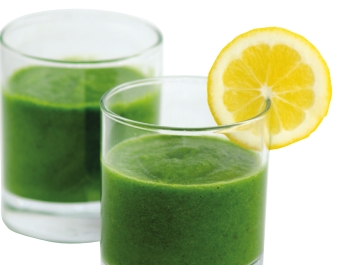

Controversial diet can be restrictive
DIET & NUTRITION
The pH levels of food are not just for science experiments anymore. Alkaline diets have become a favorite craze by many extending into the type of water consumed. While alkaline diets remain controversial among health and nutrition experts, many people are quick to point out benefits of alkaline diets, especially when it comes to alkaline water.
Our bodies’ pH levels vary among organs and is slightly changed by the foods and beverages we consume. Our blood pH tends to be more alkaline, our stomach pH is more acidic, and our urine pH will vary depending on the foods we eat, which helps to stabilize our blood pH. Alkaline diets claim to maintain normal pH balance of blood by limiting acidicproducing foods and, therefore, eliminating the loss of minerals through urine, which occurs as the body tries to restore normal pH balance. Proponents of the alkaline diet associate lower pH levels (or acidic levels) with poor health outcomes such as bone loss, heart problems and insulin resistance; however, research is limited and clusive.
incon- The alkaline diet is not all bad, but can be very restrictive. Foods allowed include many fruits and vegetables, tofu, soybeans and some nuts including chestnuts and almonds. Foods restricted include dairy, eggs, meat, fish, grains and processed foods. Since alkaline diets are not feasible for most, alkaline water has entered the scene and touts some of the same health benefits as the alkaline diet.
When it comes to water, pH levels can vary. Pure water is neutral (pH 7.0), bottled water such as Dasani and Aquafina tend to range from slightly acidic to neutral, and mineral water tends to be more alkaline. Tap water has different elements and minerals, and, therefore, pH levels vary. Since water is a major component of our diet, some researchers believe alkaline water is best to maintain a balanced blood pH level.
Alkaline water, which is high in minerals such as calcium, potassium, magnesium as well as bicarbonate, can occur naturally when spring water passes over rocks and picks up these minerals. Naturally occurring alkaline water can be found in stores, as well as alkaline water made with water ionizers. Ionizers are said to make water alkaline through electrolysis, or by sending water through an electrical current, which separates the more acidic molecules from the alkaline molecules. Water ionizers can be bought for home use as well. Alkaline water can also be made at home by adding pH drops to distilled water or by adding lemon or lime to water. Even though these fruits are acidic, it is thought that due to the mineral content, they can change the composition of water to alkaline.
 Just as with the alkaline diet, many health claims linked to alkaline water are inconclusive. While alkaline water is not harmful to the general population, more research is needed to back the health claims, and, therefore, the questionable benefit does not necessarily outweigh the cost.
Just as with the alkaline diet, many health claims linked to alkaline water are inconclusive. While alkaline water is not harmful to the general population, more research is needed to back the health claims, and, therefore, the questionable benefit does not necessarily outweigh the cost.
Bottom line is alkaline water and foods are not harmful for the general population and can be included in a healthy diet. If you are currently following any part of the alkaline diet and have seen improvements in your overall health, there is no need to stop it. However, I would recommend discussing your current diet with your dietitian or physician, especially if you have a chronic disease such as heart disease, diabetes or kidney disease, as some of these foods in excess might not be recommended or can interact with your current medications.
Alicia Smith, RD, CDE, is affiliated with Willis-Knighton Health System.
She may be reached at [email protected].